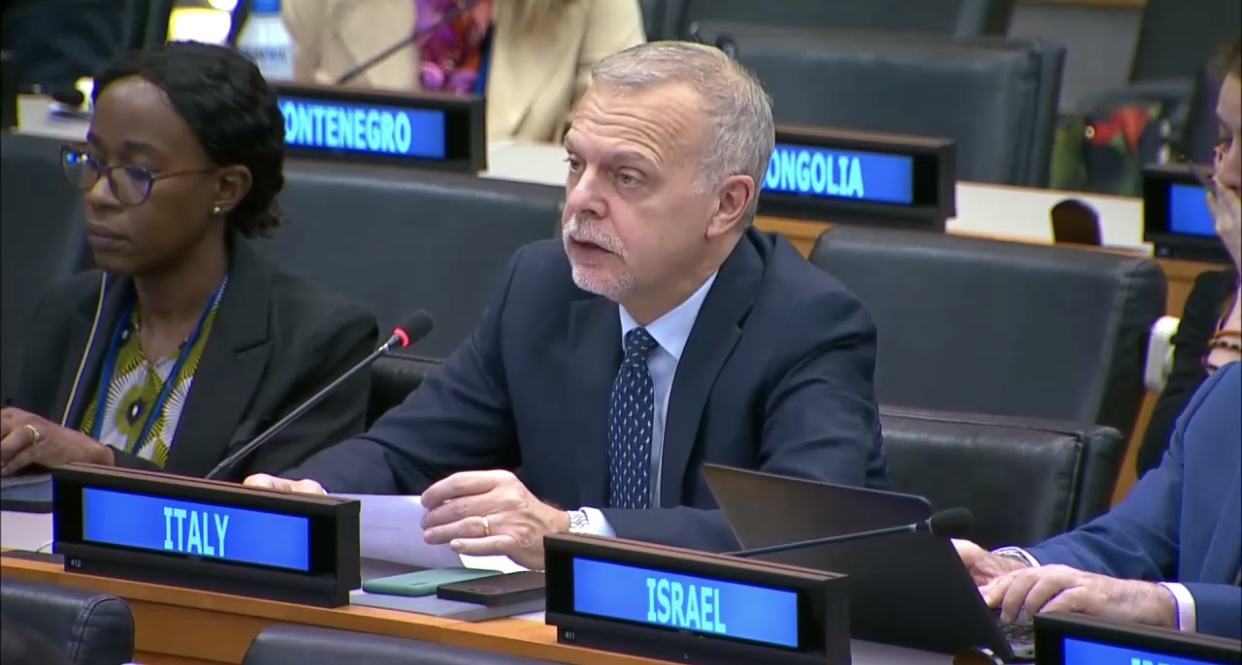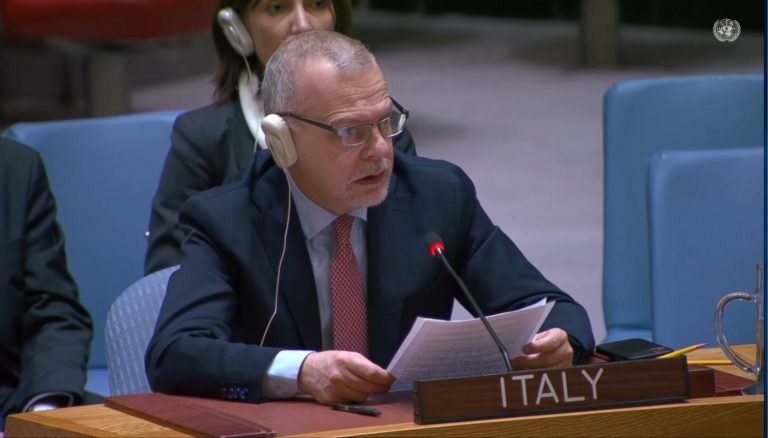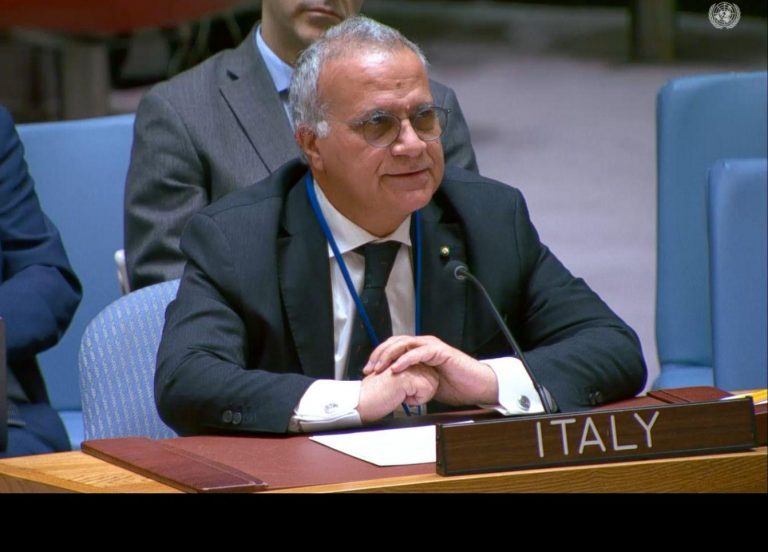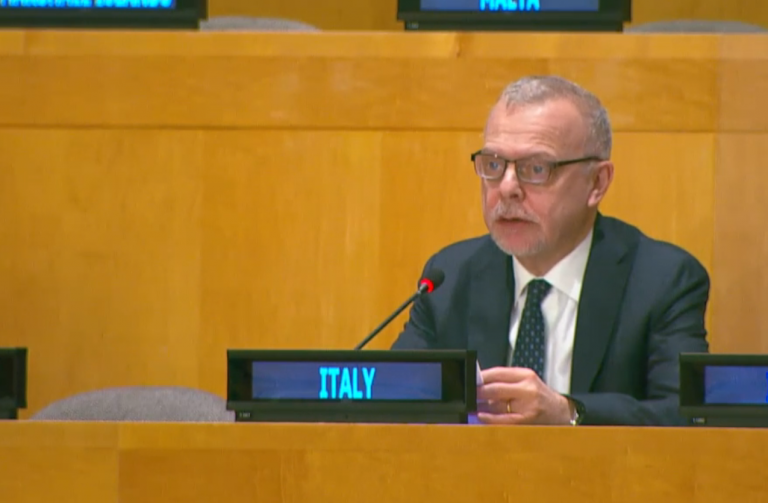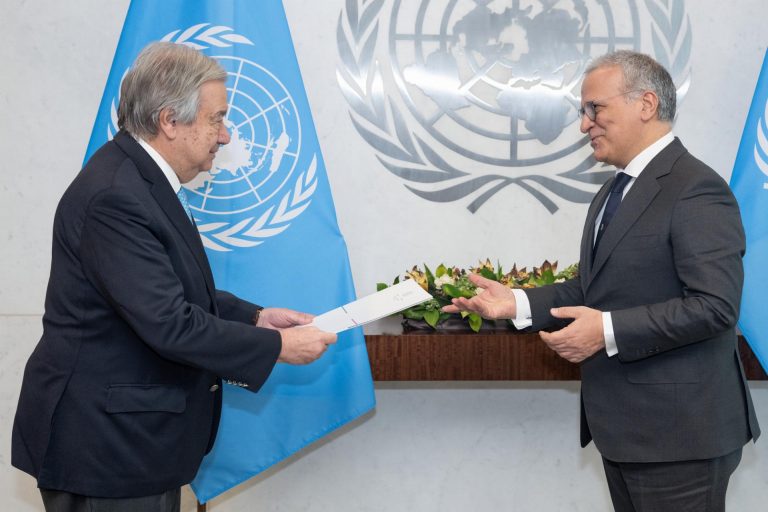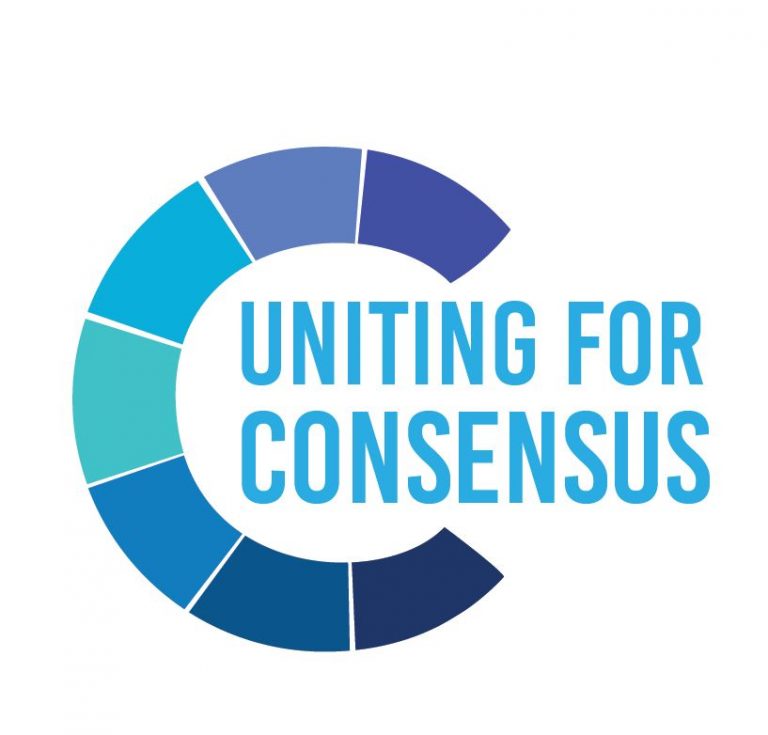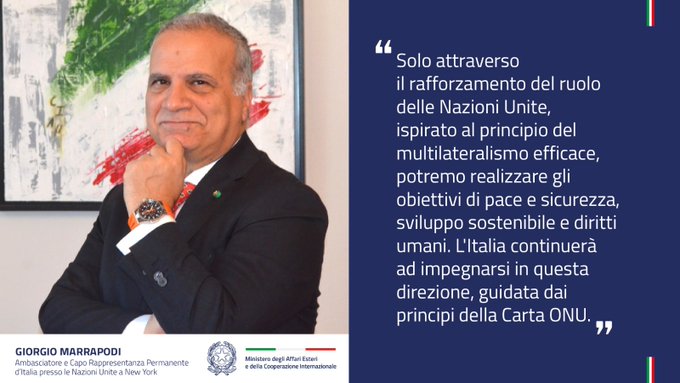Excellencies,
Colleagues,
Italy aligns itself with the statement delivered on behalf of the EU and its Member States.
Allow me to add a few remarks in my national capacity.
First of all, I congratulate the new Chair and the new Bureau of the Second Committee. We look forward to productive discussions and a successful session.
Mr Chair,
This 2nd Committee session comes at a crucial time, following the adoption of the Pact of the Future and as we prepare ourselves for the Fourth International Conference on Financing for Development (FFD4) to be held in Sevilla.
Hence, our works are well positioned to lay the ground for the implementation of the Pact of the Future and its annexes, the Global Digital Compact and the Declaration on Future Generations and to represent a building block towards FFD4, renewed in the commitment to multilateralism testified by the adoption of the Pact of the Future.
Looking more closely at our substantial agenda, we will be guided by the following priorities:
Eradicating poverty should remain our number one priority. Reducing poverty and tackling global challenges go hand in hand.
Tackling the drivers of the food insecurity and malnutrition. It is deeply alarming that one third of the world’s population remains food-insecure.
Italy has always been strongly committed to reinforcing global food security and enhancing climate resilience, as also recently shown by the Apulia Food Systems Initiative, which aims to overcome structural barriers to food security and nutrition, with specific focus on the African continent. This initiative will leverage multi-stakeholder partnerships to advance ambitious programs on the ground and harness the full potential of food systems.
Stepping up our efforts to close the SDGs financing gap. The goal remains to mobilize finance from all sources and the much required means of implementation to developing countries.
In this spirit, Italy will continue to actively contribute to the ongoing reflection on a SDGs Stimulus, following the Secretary General’s proposal.
Finally, we also believe that climate finance should be additional to ODA. That is why we set up an ad hoc national Climate Fund, recently inaugurated. Up to 75% of its resources will be earmarked for initiatives in the African continent.
Chair, colleagues,
We need a clear vision for our digital future. The recently adopted Global Digital Compact lays out this vision. The intention of Compact of closing the digital divides is not merely aspirational. The GDC, in fact, includes concrete, measurable, and actionable commitments
Implementation should be guided by the principle of leaving no one behind and reducing structural inequalities. We will have to revitalize the global partnerships for sustainable development, working closely with all relevant stakeholders. We will continue to pay special attention to the needs of the countries in special situations, SIDS, LLDCs, LDCs and addressing their specific vulnerabilities, looking forward to the Gaborone Conference, next December.
All the above mentioned themes will also be central topics for discussion at the G7 Development Ministers’ Meeting that will take place on 22-24 October in Italy where several initiatives developed with our partners, such as the
Energy for Growth in Africa Initiative, the Water Coalition and the Artificial Intelligence Hub for Sustainable Development will converge. We need open and inclusive formats, based on very broad outreach, if we want to build a new model of partnership to produce deliverables that are concrete and mutually beneficial.
Only by finding the common ground we will be able to successfully bring the SDGs back on track and to accelerate systemic actions on climate change and on financing for sustainable development.
Colleagues, count on Italy for continuing our discussion on all these topics.
I thank you, Mr Chair.







